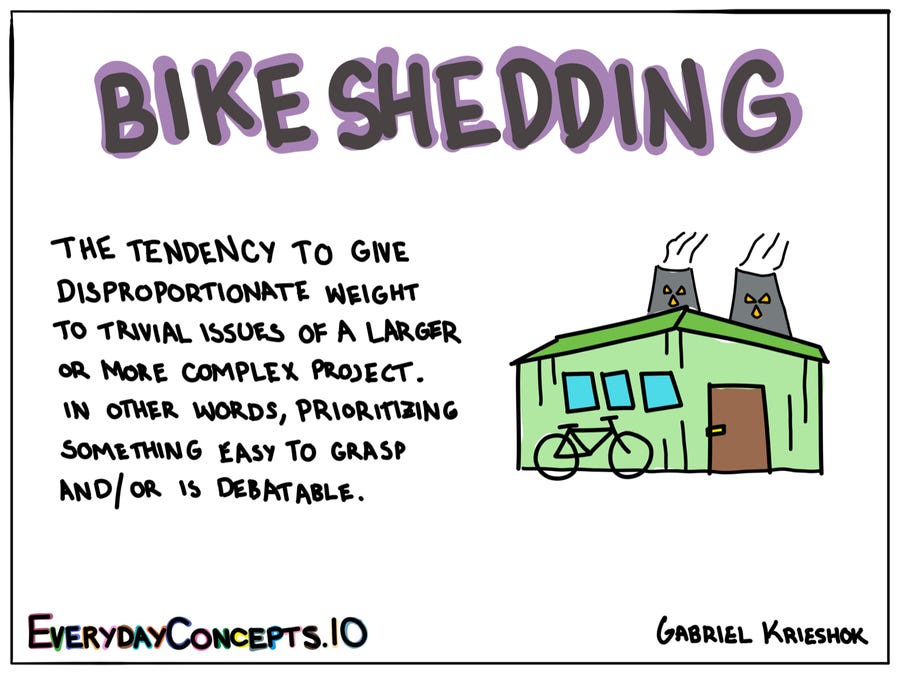Bike-shedding
How does it hold your team and organizations back?
(I’ve lightly updated this article, post-publication, to improve readability)
What is bike-shedding and how does it hold your team and organizations back?
Bike-shedding is the tendency of people and organizations to get bogged down in trivial matters, thus neglecting more important matters.
For example, imagine you are on a committee tasked with building a nuclear plant. Your first meeting must address two key points: designing the plant itself, and designing the accompanying bike shed where the workers will park their bicycles.
Bike-shedding predicts that the committee will likely spend a disproportionate amount of time debating the bike shed, neglecting the crucial task of designing the nuclear plant.
This occurs because human beings gravitate towards accessible topics, while shying away from complex, yet crucial tasks. Discussing familiar and easily understood topics feels safer and requires less effort to contribute, leading to extensive participation, and the simple overshadowing the complex.
Bike-shedding is also called Parkinson's Law of Triviality (named after the British naval historian Cyril Northcote Parkinson) which states: "the amount of time spent discussing an issue in an organization is inversely proportional to its actual importance in the grand scheme of things."
Bike-shedding occurs in other areas including politics (focusing on simple wedge issues instead of complex policy), communication (focusing on fonts or colors and neglecting the message) and personal goal setting (focusing on the minutiae of the “how” and neglecting the “why?”).
To combat bike-shedding:
Focus meetings: Limit to a single, well-defined topic
Streamline participation: Minimize the number of attendees to essential individuals
Pre-distribute information: Ensure participants are well-informed on complex topics beforehand
Delegate tasks: Assign trivial matters to smaller teams or sub-committees
Recognize and redirect: Acknowledge bike-shedding when it occurs and steer the conversation back to the main points
Remember what Stephen Covey wisely said, “The main thing is to keep the main thing the main thing.”


